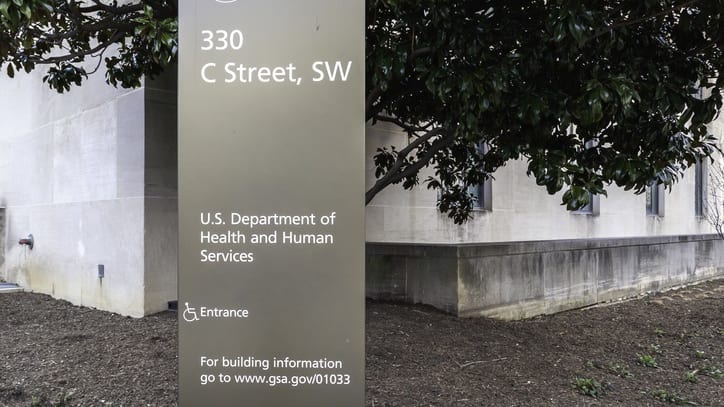HHS Nondiscrimination Proposal on Gender Procedures, Abortions Meets Resistance
Application to employer-sponsored plans is unclear

Some conservatives are continuing to oppose a Department of Health and Human Services (HHS) proposed rule that would expand the Affordable Care Act's Section 1557 requirement that most health plans not discriminate on the basis of sex. The expanded definition bars discrimination based on gender identity, sexual orientation and pregnancy termination. The change could require many private plans to cover gender-transition treatments and abortions, opponents of the rule say.
Rep. Virginia Foxx, R-N.C., House Education and Labor Committee Republican leader, and Rep. Rick Allen, R-Ga., House Health, Employment, Labor, and Pensions Subcommittee Republican leader, urged HHS to withdraw its proposed rule, Nondiscrimination in Health Programs and Activities. They did so in a letter sent on Nov. 7 to HHS Secretary Xavier Becerra.
According to an HHS fact sheet, the proposed rule applies to health insurers or plans that receive federal funds, such as a grant or loan, or that contract with the government.
"This proposed rule ensures that people nationwide can access health care free from discrimination," Becerra said in August, when the proposed rule was issued. "Standing with communities in need is critical, particularly given increased attacks on women, trans youth, and health care providers."
In their letter, Foxx and Allen wrote that "these changes would mandate that covered entities, including private health plans, provide gender-affirming procedures, including procedures for children, and abortions."
That view is shared, at least in part, by some who favor the rule. According to the Center for American Progress, which supports progressive policies, under the proposed rule "a plan that excludes coverage for a vaginoplasty surgery for an enrollee whose sex assigned at birth is male, while providing coverage for such a medically necessary surgery for enrollees whose sex assigned at birth is female, would constitute a discriminatory policy."
Application to Employer-Sponsored Plans
It's unclear, some legal analysts say, how extensively the rule would apply to employer-sponsored plans. According to attorneys at law firm McDermott Will & Emery, under a 2016 HHS rule, "employer-sponsored group health plans were directly subject to Section 1557," but under a 2020 final rule, "employer-sponsored group health plans that do not receive federal financial assistance and are not principally engaged in the business of providing health care were no longer considered covered entities subject to Section 1557."
The definition of a covered entity in the new proposed rule, the attorneys wrote, "while similar in many ways to the 2016 final rule, does not explicitly include employee benefit group health plans as covered entities subject to Section 1557," leaving its application to employer plans unresolved.
In their letter, Foxx and Allen argued that, under the HHS proposal, "if a third-party health plan administrator (TPA) receives federal funding in addition to contracting with an employer plan governed by the Employee Retirement Income Security Act (ERISA), then the employer plan will be subject to Section 1557 restrictions even if it is self-funded."
Under current law, they said, self-funded plans are not subject to Section 1557 and are regulated by the Department of Labor. "We believe it is inappropriate and contrary to statutory law for HHS to use Section 1557 as a means to regulate ERISA plans," Foxx and Allen wrote. The result will be to "force self-insured plans [that] contract with TPAs to cover abortion and transgender health care services in an effort to avoid costly and time-consuming investigations," even if they have objections to doing so.
Religious Exemptions
The proposal includes a procedure for raising objections under federal conscience or religious freedom laws and states that the HHS Office for Civil Rights will "evaluate the facts on a case-by-case basis to determine whether the group health plan is a covered entity" subject to the expanded nondiscrimination requirements.
Critics charge that this would empower HHS to provide only a narrow religious exemption for employer plans.
The U.S. Conference of Catholic Bishops is among religious groups that took issue with the HHS proposal. The bishops wrote that "assurances that HHS will honor religious freedom laws offer little comfort when HHS is actively fighting court rulings that declared HHS violated religious freedom laws the last time they tried to impose such a mandate."
An organization run by AI is not a futuristic concept. Such technology is already a part of many workplaces and will continue to shape the labor market and HR. Here's how employers and employees can successfully manage generative AI and other AI-powered systems.



